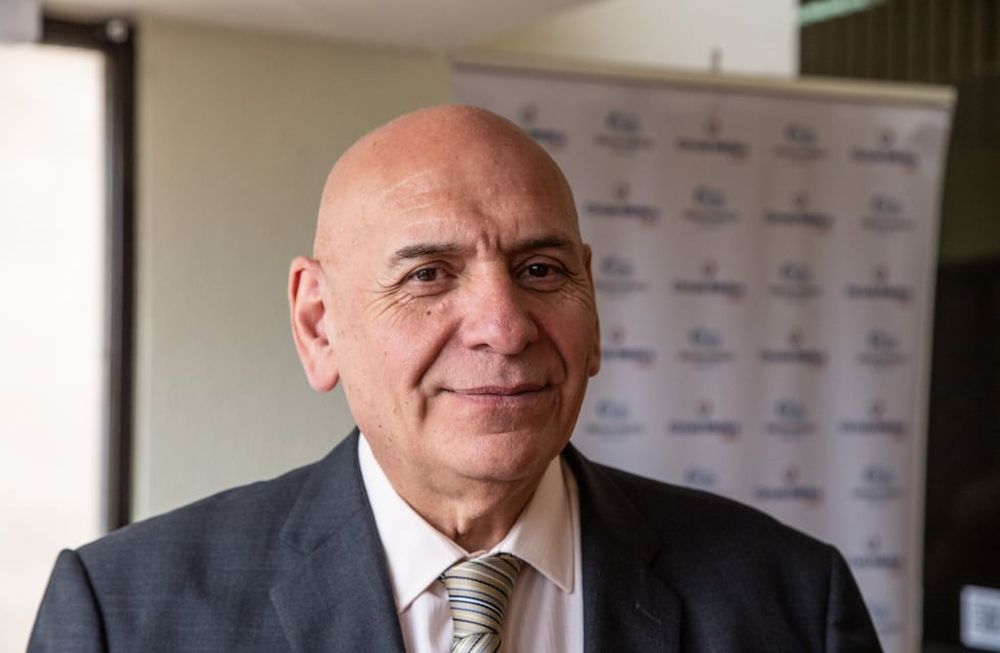Health crisis: Doctors are charging up to 7% of the real value of a service in Mendoza.

It is even mentioned that the dignity of doctors is at stake. The head of the organization , Dr. José Lodovico, warned about this problem in a document titled "Medical Fees in Crisis: Professional Dignity at Stake." There, he provides some details and examples of the gap between actual values and what providers pay, as well as mentioning the delays they face until they receive their payments.
Two doctors prosecuted for operating on a woman's healthy ankle

"In practice, the doctor is the last to be paid. Furthermore, he or she charges less, charges late, and has no room for negotiation. The patient, for their part, often doesn't know how much of what they pay actually reaches the person treating them ," he emphasizes.
With this, the expert expresses that behind every medical consultation lies a silent reality that directly affects professional practice: doctors are paid little, late, and with no room for negotiation.
He cites a recent example to explain this clearly. A cardiologist who treated patients in April 2025 only received his paycheck in July, with amounts that demonstrate the distortions of the system: $5,366 for a consultation and $1,493 for an electrocardiogram. According to ethical values suggested by the Mendoza Cardiologists Association, these services should be paid $28,531 and $20,074, respectively. In other words, the professional received only 18% and 7% of the corresponding value.
This case is not an isolated one. It's the norm in a healthcare system where doctors are the last link, says Lodovico : "It's a common mechanism in the system. Between the doctor and the patient, there are funders (social security and prepaid health plans) and providers (clinics or intermediaries), who agree on the prices. The doctor doesn't participate in setting the fees or the payment schedule. He simply provides the service, bills, and waits."
Lodovico warned that this situation not only violates the dignity of the workplace, but also jeopardizes the quality of the healthcare system . Outdated fees and precarious conditions discourage professional practice and overburden those who remain in the workforce.
The president of the Mendoza Medical Circle, José Lodovico Palma, analyzed the complex situation facing the country's healthcare system and outlined the long-term risks.

Although healthcare spending in Argentina represents between 8% and 10% of GDP, medical fees account for only 15% of that expenditure . From medical associations, the question is clear: where does the rest of the money go?
He maintains that the doctors' demands are not aimed at conflict, but rather at highlighting a structural crisis. They demand decent fees, monthly updates, and timely payments. They argue that without fair conditions for professionals, quality healthcare cannot exist.
The professional showed some spreadsheets with examples from different health insurance companies. They show payments of $4,000 and $1,493 for an electrocardiogram, depending on the provider. He added several cases of consultations that were paid at $5,366, while only one paid $9,600 in the same case. He contrasted this with another spreadsheet from the Mendoza Cardiologists Association with the May nomenclature, which stipulates the cost of a cardiology consultation at $26,531, a home visit at $61,764, and an electrocardiogram at $20,074.
Previous warnings from national doctorsAt the end of April, 21 professional and scientific medical associations from across the country, meeting at the Forum of Medical Societies , warned of the "serious crisis" facing the Argentine healthcare system. Among the main problems highlighted were delays in care, a lack of specialists, and increasing job insecurity.
Professionals warn that the multiple jobs many doctors are forced to take on due to the sustained decline in their income is directly affecting the quality of patient care . This situation, they argue, not only compromises the well-being of those working in healthcare, but also jeopardizes the effectiveness of the system as a whole.
“Regarding access to the healthcare system, we are witnessing delays in care, including in emergencies, overwhelmed emergency services that only see patients in life-threatening situations during marginal hours, undercrowded medical residences—as young professionals choose other paths—and appointments for care or testing that are delayed for more than two months, among many other deficiencies,” said Dr. Gabriel Persi, vice president of the Argentine Neurological Society.
What the full text saysBehind every medical consultation lies a silent plot that undermines professional practice. A specific case clearly reveals this.
Society frequently hears that "doctors' fees are overdue" or that "payments are late." However, it is rarely explained why this situation has become unsustainable. Medical associations have been pointing out that the weakest link in the health system is the doctors and the
patients. This statement is not a slogan: it is a truth that is verified every day in professional practice.
To illustrate, a real-life example suffices. In April 2025, a cardiologist performed several services for patients with different health insurance plans. At the end of July—three months later—he received his fee settlement from the clinic (intermediary provider). It shows that he was paid $5,366.47 for a cardiology consultation, and $1,493.98 for an electrocardiogram.
The relevant data? According to the May 2025 Nomenclature of the Mendoza Association of Cardiologists, the suggested ethical value for a cardiology consultation is $28,531.95 and for an electrocardiogram $20,074.26. In other words, these professionals will charge only 18% of the ethical value of the consultation and only 7% of the ethical value of the electrocardiogram.
And this isn't an isolated case. It's a common mechanism in the system. Funders (social insurance companies and prepaid health insurance) and providers (clinics or intermediaries) intervene between the doctor and the patient, and they agree on the prices. The doctor doesn't participate in setting the fees or the payment schedule. He simply provides the service, bills, and waits.
In practice, the doctor is the last to be paid. Furthermore, he or she charges less, charges late, and has no room for negotiation. Patients, for their part, often don't know how much of what they pay actually reaches the person treating them.
This distortion of the system has serious consequences. It discourages professional practice, overburdens those who continue to work in precarious conditions, and deteriorates the quality of the healthcare system as a whole. Because professional dignity is not a privilege: it is a necessary condition for quality medicine.
Healthcare spending in Argentina is between 8 and 10% of GDP. However, physician fees represent only 15% of total healthcare spending, according to academic estimates. The question is obvious: where does the rest go? What part of the system is fed by this difference while professionals barely survive? This example isn't meant to cause alarm. It seeks to open eyes. It clearly explains why we demand decent fees, monthly updates, and timely payment. Healthcare cannot continue to depend on the silent sacrifice of its professionals. Because caring for those who care is everyone's responsibility.
losandes





